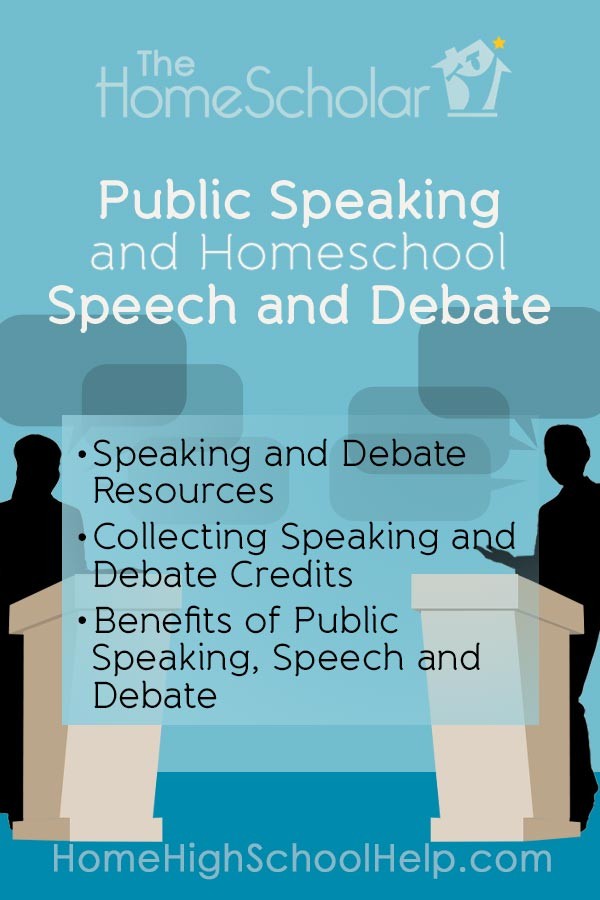Public Speaking and Speech and Debate
Public speaking is often considered one of the major fears of humans. Studies show that as much as 70% of the population have experienced fear of public speaking. Some even fear it more than death! It doesn't have to be that way for your children.
This post contains affiliate links. If you click and buy, I may make a few pennies, but not enough for a latte.
Homeschool Speech and Debate
Homeschool Public Speaking
To learn the very basics of public speaking, my favorite resource is, "Secrets of Great Communicators: Simple, Powerful Strategies for Reaching the Heart of Your Audience" by Jeff Myers.
Practice can be achieved by regularly memorizing and presenting prepared speeches to friends and family. Perhaps weekly you could ask the student to memorize scripture, poetry, or famous speeches from the past. Then students can improve their public speaking skills by memorizing and presenting prepared speeches to friends and family.
To memorize famous poems to tie in with your study of American or British Literature, my favorite source is A Treasury of Poetry for Young People.
To memorize famous speeches to tie in with your study of American History, American Government, or World History, my favorite resource is Speeches that Changed the World by Simon Sebag Montefiore.
High School Credit for Speech and Debate
There are so many ways for homeschoolers to include speaking, speech and debate in high school, there is not one single formula on how to give credit.
Calculate Credits. Carefully determine credit value by estimating the number of hours worked. 60-90 hours indicates a half credit or semester. 120-180 hours or more in a school year is one credit.
Class Title. Speech and debate clubs can be one class, an elective called "Speech and Debate." Because speech is part of English communication skills, it could also be put into the English subject area. "Public Speaking" is a great title for speaking that is not included in other classes.
Multiple Credits. If the student works for so many hours it prevents them from taking social studies or English classes, consider dividing the experience into multiple classes. Sometimes students will work on speeches and debate for multiple hours every day, all year. In this instance, it becomes the delight directed learning method of teaching English, social studies, and possibly an elective as well. Depending on how many hours spent, Speech and Debate class titles might be: American Government, Comparative Government, Constitutional Studies, Law and Government, Current Events, 20th Century History, or American History. This must be done very carefully to avoid double dipping on the homeschool transcript. Read my article Double Dipping Explained for the Homeschool Transcript.
Transcript and Course Descriptions. Each speech and debate competition could be a standalone "unit study" that you combine into one class.
Activity List. Include groups on the activity list. An abbreviated notation on the transcript might simply be "NCFCA Christian Speech & Debate League 9, 10, 11, 12." The details of competitions and awards would go on a separate activity list.
Benefits and Public Speaking in High School
Colleges are really attracted to students who are doing interesting and unique things. Those interests of your child will help them stand out from the hundreds of other cookie-cutter kids, hopefully earning college admissions and scholarships.
Whatever you choose, it's important to follow your child's interests, and make opportunities for them to learn. And don't forget the homeschool record-keeping that must go along with these learning experiences. You want to show the colleges the great things your child did!
When you subscribe to the blog, we will send you an e-mail when there are new updates on the site so you wouldn't miss them.

 Login
Login









.jpg)

Comments